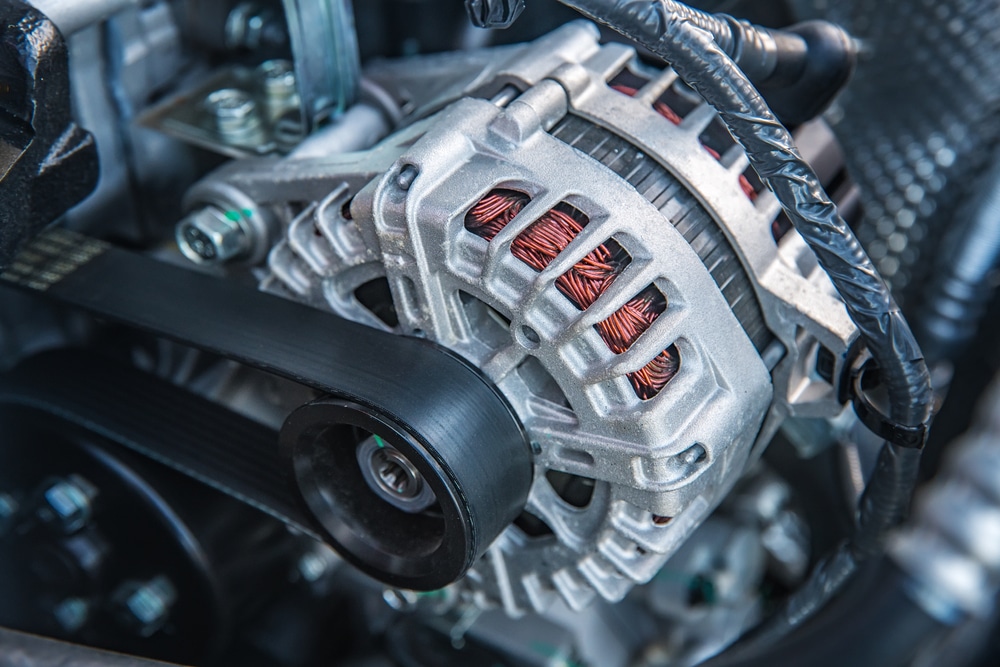
When it comes to maintaining your vehicle, knowing the lifespan of essential components like the alternator is crucial. The alternator plays a vital role in keeping your car running smoothly, as it supplies power to the battery and electrical system while your engine is running.
Understanding the general lifespan of an alternator and recognizing the signs of a failing unit can help you take preventive measures to avoid unexpected breakdowns.
Average Alternator Lifespan
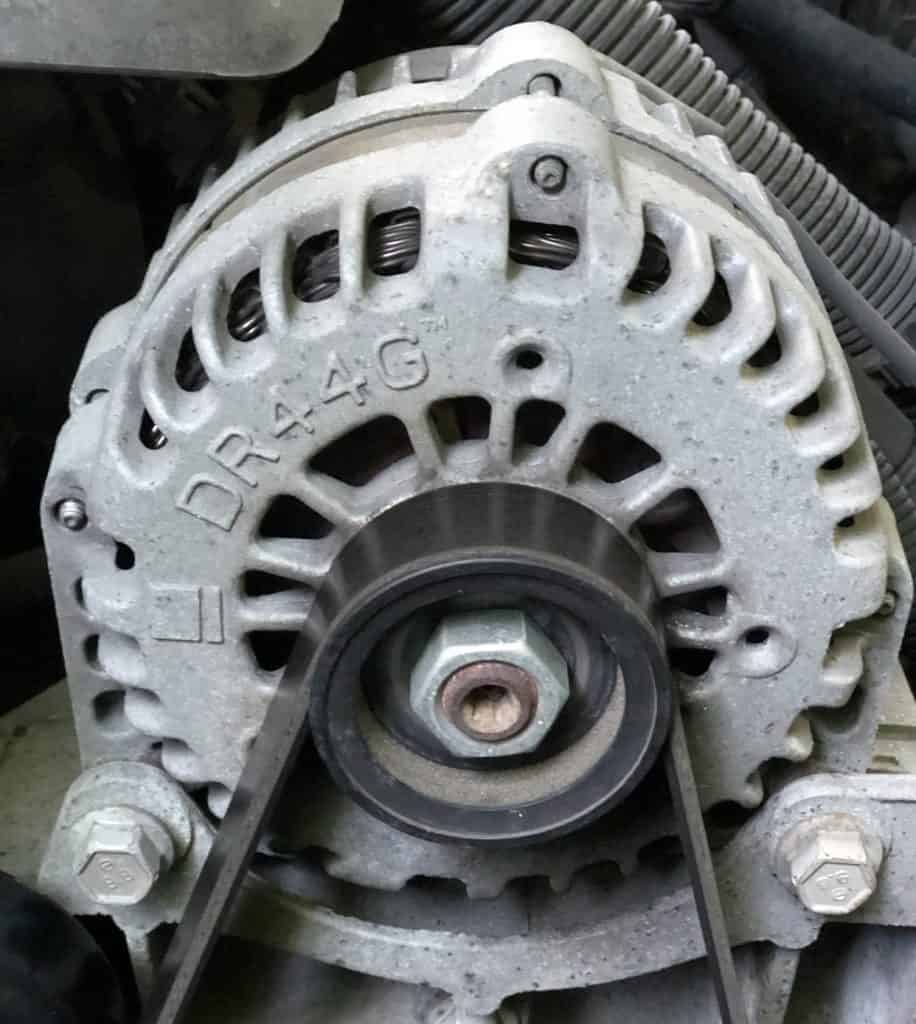
In general, the lifespan of an alternator can range between 80,000 and 150,000 miles, but it can vary depending on factors such as driving conditions and the specific make and model of your vehicle.
Some cars may experience alternator failure at 60,000 miles, while others may continue running well past 150,000 miles. This wide range illustrates how important it is to be aware of potential issues and monitor your car’s electrical performance.
As your alternator begins to wear out, you may notice a loss of power to various accessories when your car is idling, dimming headlights, and dashboard lights or the ALT/GEN warning light turning on.
By paying attention to these early symptoms and addressing them promptly, you can avoid the inconvenience and cost of a breakdown or other alternator-related issues.
Understanding Alternators
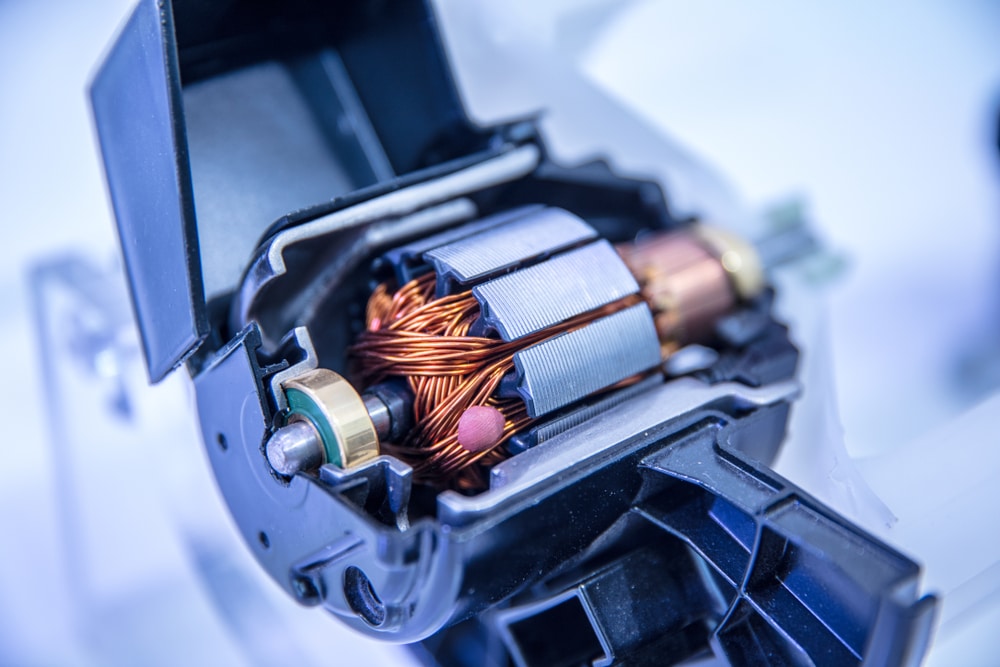
Primary Function
An alternator plays a crucial role in your vehicle’s operation. Its primary function is to convert mechanical energy generated by the engine into electrical energy that recharges the car’s battery.
This powers all of your vehicle’s electrical systems, such as the headlights, air conditioning, and dashboard instrument panels. It’s important to understand how long an alternator lasts to keep your car running smoothly and avoid potential issues.
Components
The alternator is made up of several key components:
- Stator: The stationary part of the alternator that creates a magnetic field around the rotor.
- Rotor: A rotating component that spins within the stator, generating an alternating current (AC) voltage.
- Diode Rectifier: This component converts the AC voltage produced by the rotor into direct current (DC), which is used to recharge the battery and power the vehicle’s electrical systems.
- Voltage Regulator: This crucial part regulates the output voltage of the alternator to ensure a consistent supply of power to the battery and electrical systems.
Factors Affecting Alternator Lifespan
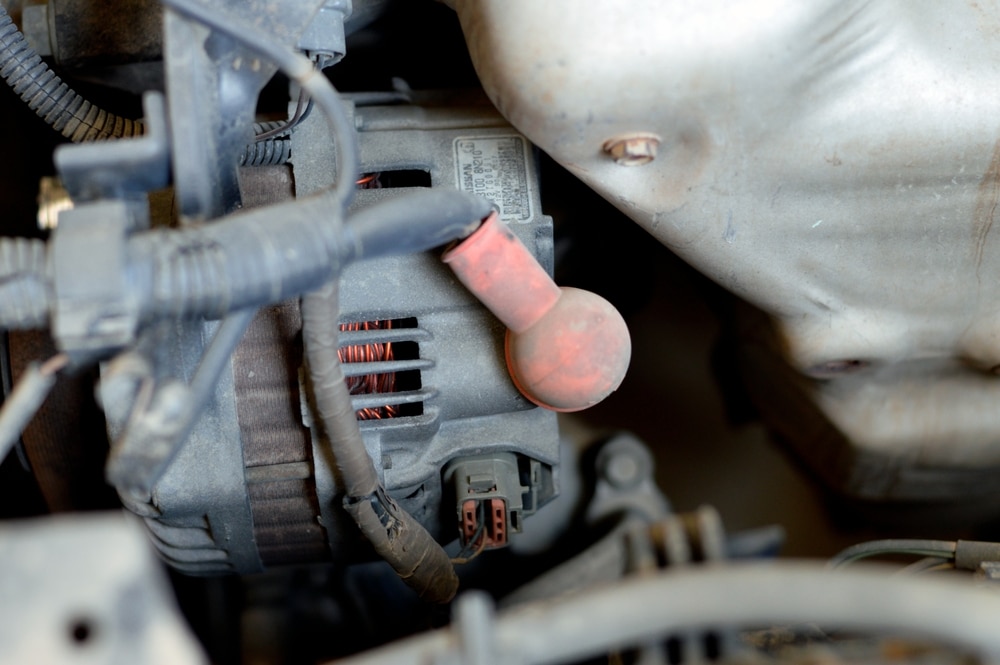
When it comes to the lifespan of an alternator, several factors can impact how long it lasts. In this section, we will discuss three main factors: vehicle usage, driving conditions, and maintenance.
Vehicle Usage
Alternators wear out based on mileage, and rarely on time. Every part in a vehicle will eventually wear out if you drive it enough.
Most alternators can make it to 100k miles without much of an issue, and your vehicle’s maintenance schedule will advise when you should preemptively replace it.
Driving Conditions
The driving conditions you experience can also impact the longevity of your alternator. For example:
- Extreme temperatures: Hot or cold temperatures can strain your alternator, reducing its lifespan.
- High electrical demands: Frequently using devices or accessories that require a lot of electrical power (e.g., powerful sound systems, heated seats) can put more stress on your alternator.
- Stop-and-go driving: Continually stopping and starting your vehicle can cause your alternator to work harder, which may result in a shorter lifespan.
Maintenance
Proper maintenance of your vehicle and its components, including the alternator, will affect its overall lifespan. Some key maintenance practices include:
- Regular inspections: Keep an eye on your vehicle’s electrical system and watch for any signs of alternator failure, such as dimming lights, warning lights, or battery problems.
- Replacing worn belts: Periodically replace worn accessory drive belts that connect the alternator to the engine, as a damaged belt can affect alternator effectiveness.
- Checking for corrosion: Inspect the alternator for signs of corrosion or wear, which may impair its function.
By taking these factors into account and maintaining your vehicle’s electrical system, you can help ensure your alternator lasts as long as possible.
Signs of a Failing Alternator
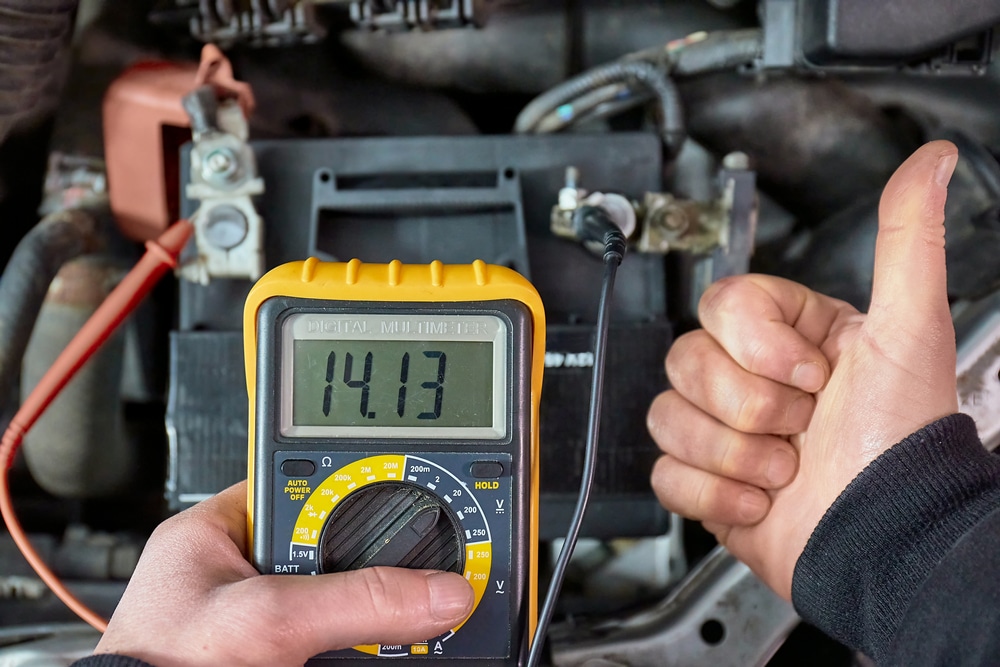
A failing alternator can cause various issues in your vehicle, and it’s important to be aware of the signs that could indicate a problem. In this section, we will discuss three common symptoms of a failing alternator: Dimming Lights, Power Loss, and Warning Lights.
Dimming Lights
One of the most common signs of a failing alternator is dim or flickering lights. This can be particularly noticeable when your headlights are on at night, but you might also see it in your dash lights and the center dome light. If the lights brighten as your RPMs pick up, that’s even more indicative of a potential alternator issue.
Power Loss
When an alternator begins to fail, it may provide inconsistent voltage to your electronic accessories, leading to power loss.
This can manifest as slow or non-responsive accessories, such as your stereo turning off randomly or your windshield wipers not working correctly. If you notice that your car’s accessories are not performing as they should, it’s a good idea to investigate the alternator as a possible cause.
Warning Lights
Finally, if your alternator’s output goes below or above a pre-set limit, your car’s warning light will come on. In most vehicles, this warning light looks like a battery. Pay attention to this indicator, as it’s an essential sign that your alternator might be failing and needs attention.
Remember, keeping an eye out for these signs and addressing any potential alternator issues promptly can help prevent further problems and ensure the smooth functioning of your vehicle.
How to Prolong Alternator Life
In this section, we will discuss ways to prolong the life of your alternator. By following these simple maintenance tips, you can ensure that your alternator lasts as long as possible.
Routine Inspections
Regularly inspect your alternator for signs of wear and tear, such as cracks, corrosion, or loose connections. Make it a habit to check your alternator during routine vehicle maintenance, such as oil changes or tire rotations. By catching potential issues early on, you can address them before they become more significant and costly problems.
Cleaning Connections
Over time, dirt and grime can build up on the connections within your alternator, which can lead to poor performance or even failure.
To prevent this, make sure to clean the connections periodically. Use a soft-bristle brush or a can of compressed air to gently remove dust and debris from the connections.
After cleaning, make sure all connections are secure and properly seated. This simple step can go a long way in preserving the overall health of your alternator.
Conclusion
You may wonder, how long should an alternator last? Generally speaking, alternators have a lifespan of about 6-10 years or 80,000-150,000 miles. However, this range can vary based on factors like the quality of the alternator and the overall condition of your car.
It is important to be aware of the signs that your alternator may be wearing out, such as loss of power to various accessories while your car is idling, dimming headlights, or dashboard lights. If you notice any of these symptoms, it’s a good idea to have your alternator inspected by a professional mechanic.
Frequently Asked Questions
How often should an alternator be replaced?
Alternators generally last about 6-10 years or 80,000-150,000 miles, but this can vary depending on factors such as the car make and model, driving conditions, and maintenance. Keep an eye out for signs that your alternator may be wearing out, such as dimming headlights or dashboard lights.
What factors cause an alternator to fail?
Factors that can contribute to alternator failure include excessive heat, electrical component failure, worn or loose belts, and corrosive environments. Regularly inspect your alternator for visual signs of wear and tear, and ensure it is properly maintained to prolong its lifespan.
How can you tell if an alternator is going bad?
One indication that your alternator is going bad is the loss of power to various accessories when your car is idling. Other signs include dimming headlights or dashboard lights, a squealing sound from the engine bay, or the ALT/GEN warning light coming on. If you experience any of these issues, have your alternator checked by a professional.
Can an alternator last over 200,000 miles?
Although it is possible for some alternators to last over 200,000 miles, especially in well-maintained vehicles, it’s not typical. Alternator lifespan varies based on factors such as the car brand, driving conditions, and maintenance practices.
How long does a rebuilt alternator typically last?
A rebuilt alternator can last anywhere from a few years to the full lifespan of a new alternator, depending on the quality of the rebuild and the components used. However, it’s important to choose a reputable repair shop for the rebuild process, as a poorly rebuilt alternator may not last as long.
What is the average lifespan of a vehicle alternator?
The average lifespan of a vehicle alternator is between 6-10 years or 80,000-150,000 miles. Some brands, like Lexus, Toyota, and Honda, tend to have longer-lasting alternators than economy vehicles or older models. Keep in mind that regular maintenance and inspection of your alternator can help ensure it lasts as long as possible.
